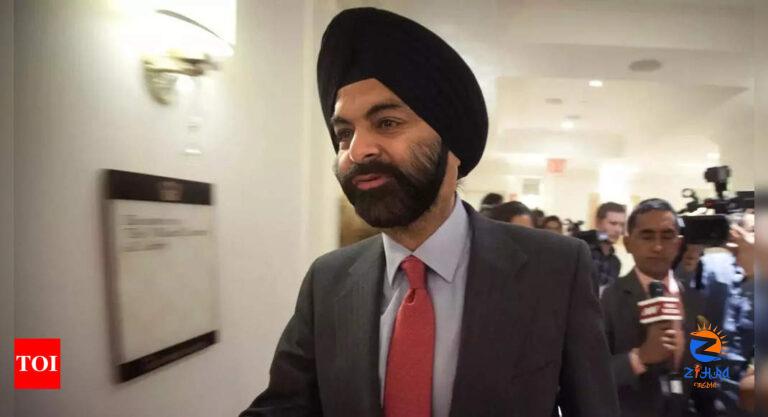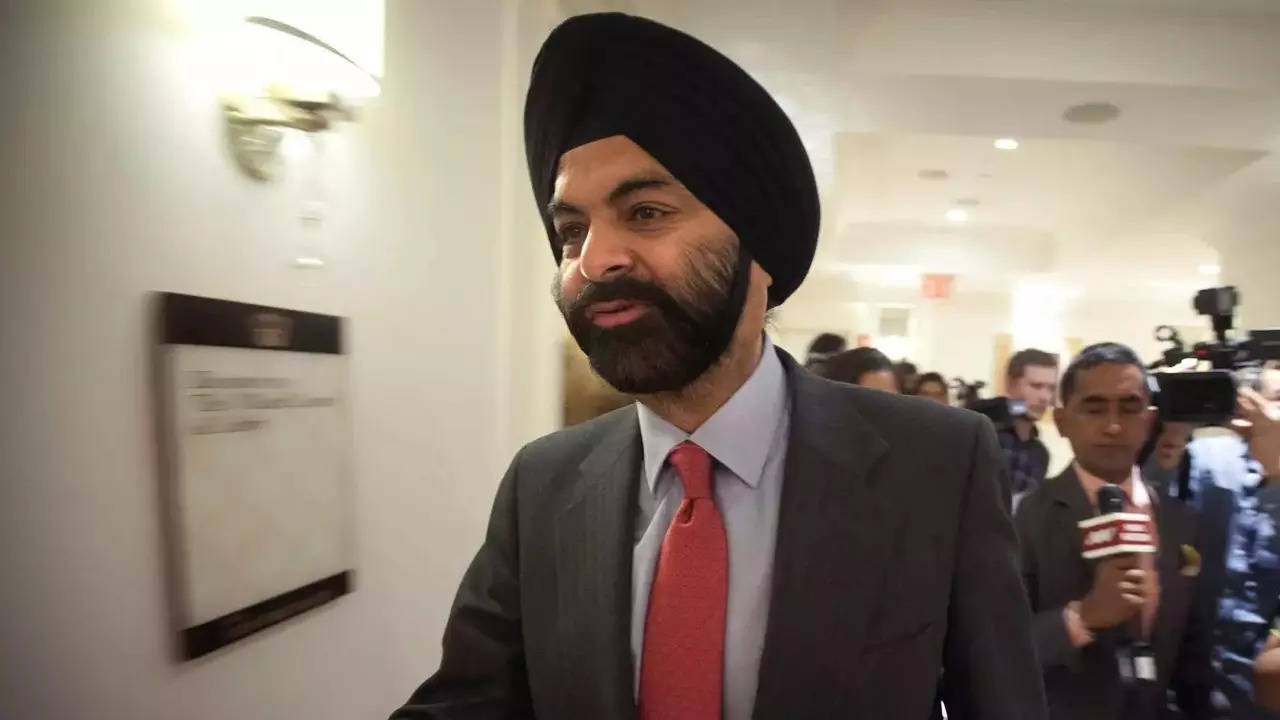
[ad_1]
It is a rare exception to the default academic and career template most immigrant CEOs of Indian-origin have: They are born, raised, and have their early education in India, but higher education and early career is invariably in the United States. Indra Nooyi, Satya Nadella, and Sundar Pichai are among those in this category. Indeed, they may have graduated from IITs and IIMs, but the finishing school is typically Stanford, Wharton, Harvard, Yale etc.
Ajaypal Singh Banga in contrast is largely minted in India, a fact that was noted by President Biden, and which may have even helped in his choice. “Raised in India, Ajay has a unique perspective on the opportunities and challenges facing developing countries and how the World Bank can deliver on its ambitious agenda to reduce poverty and expand prosperity,” Biden observed in remarks that were echoed by other analysts and admirers.
M.R.Rangaswami, founder and chairman of Indiaspora, a network of global Indian-origin leaders, calls Banga’s nomination an “inspired choice” by President Biden given recent commentary around the Bank’s mission and objectives, including a sharp focus on climate resiliency and environmental sustainability that the former Mastercard honcho is eminently qualified to bring. Sanjeev Joshipura, Indiaspora’s Executive Director, noted that as the first Indian-born nominee to the World Bank Presidency, Banga would bring “a lived understanding of the challenges faced by developing nations.”
Indeed, much of Banga’s early career — after schooling in Secunderabad, Jalandhar, Delhi, and Shimla, the outcome of fauji (army) family — was shaped in India. After graduating from IIM Ahmedabad, Banga joined Nestle India in 1981, working there for 13 years on a range of assignments spanning sales, marketing, and general management. He then joined Pepsico to launch its fast-food franchises in a liberalizing India, before moving to Citibank in 1996 as the head of marketing in India for the consumer business.
Over the next 13 years he served in a range of positions at Citi, including eventually leading the retail banking and consumer assets division in the US (which first brought him to New York City just before 9/11) and later as head of its Asia-Pacific operation in Hong Kong.
He would have been on track to head Citibank as a protege of then Chairman Sandy Weill ( Vikram Pandit, another Indian-American, was CEO at that time), but Banga quietly peeled off to Mastercard, then a modest 5000-people company (compared to 300,000 at Citi) that was looking to take on market leader Visa. By the time he wrapped up his stint a decade later, he had tripled its annual revenue and become an icon in the industry for his cash bashing and digitization efforts aimed at supplanting currency with card.
It was the kind of track record that led US Treasury Secretary Janet Yellen, who was in Bangalore for the G-20 finance ministers meeting when President Biden announced Banga’s nomination, to note that “His efforts have helped bring 500 million unbanked people into the digital economy and deploy private capital into climate solutions.”
Of course, not everyone is chuffed about Biden’s choice. Some critics are already sharpening knives calling him a “Wall Street insider” and a “big business executive” without the kind of public sector experience they say the Bank needs. “Banga’s long career at predatory banks and corporations does not inspire confidence that he would transform the World Bank into an institution that can work for people and the planet. On the contrary, it’s sadly ironic that his past work as a Nestlé executive aligns with the World Bank’s damaging history of water privatization,” the group OilChange international said in a statement.
But he has the backing of the Biden administration and confirmation is expected to be a formality. Vice President Kamala Harris, who has worked closely with Banga on migration issue in North Central America, said he will be a “transformative” World Bank President who will bring “great insight, energy, and persistence…to address global challenges and promote economic opportunity.”
Humble and self-effacing, Banga’s public talks – particularly at schools and colleges he frequents – are inspirational. The story goes that in the days after 9/11 when he was relatively new in NYC, Citibank’s Weill had to convince him to take the company jet instead of flying commercial and risking immigration scrutiny. Despite stray attacks on Sikhs in NYC, Banga insisted on walking to work, and Weill would often stop by his apartment building to walk with him to give him cover.
In a 2016 leadership forum, Marc Olivie, president and CEO of Columbus-based W.C. Bradley Co. recalled a business trip with Banga to Turkiye. As they were crossing a street, some men in a vehicle passing by shouted at Banga, calling him a Taliban terrorist. “Here you are the CEO of one of the largest companies in the world, serving on several committees of the president of the United States. How do you deal with such ignorance and bigotry, and what will it take to change it? he asked.
“You have to shrug it off because you’ve got two options at that time — you can either shrug it off or you can get angry. Angry isn’t going to change it,” said Banga, cheekily adding, “By the way, there were four of them in that car and there was only you and me. I learned as a kid you don’t take on a fight that you can’t win. And I wasn’t sure you were going to fight with me, Marc.”
Such experiences have led Banga to repeatedly emphasize the need for diversity in organizations, best expressed in an oft-cited quote: In nature, you get penalized for not being diverse enough. Being a panda and having bamboo as your only food source quite dramatically increases your chances of becoming extinct. In several forums, he has repeatedly emphasized the importance of leaders surrounding themselves with different people who have had different life and work experiences; to embrace all races and cultures and genders.
“At the end of the day, if you surround yourself with people who look like you, who walk like you and talk like you, and grew up in the same places you did and worked with you in your prior jobs, then you will have a sense of comfort of hiring people around you who have that familiarity. But you will also have the same blind spots. You will miss the same trends. You will miss the same opportunities,” he explains.
Evidently, the most diverse administration in American history took the cue and acted upon it.
[ad_2]
